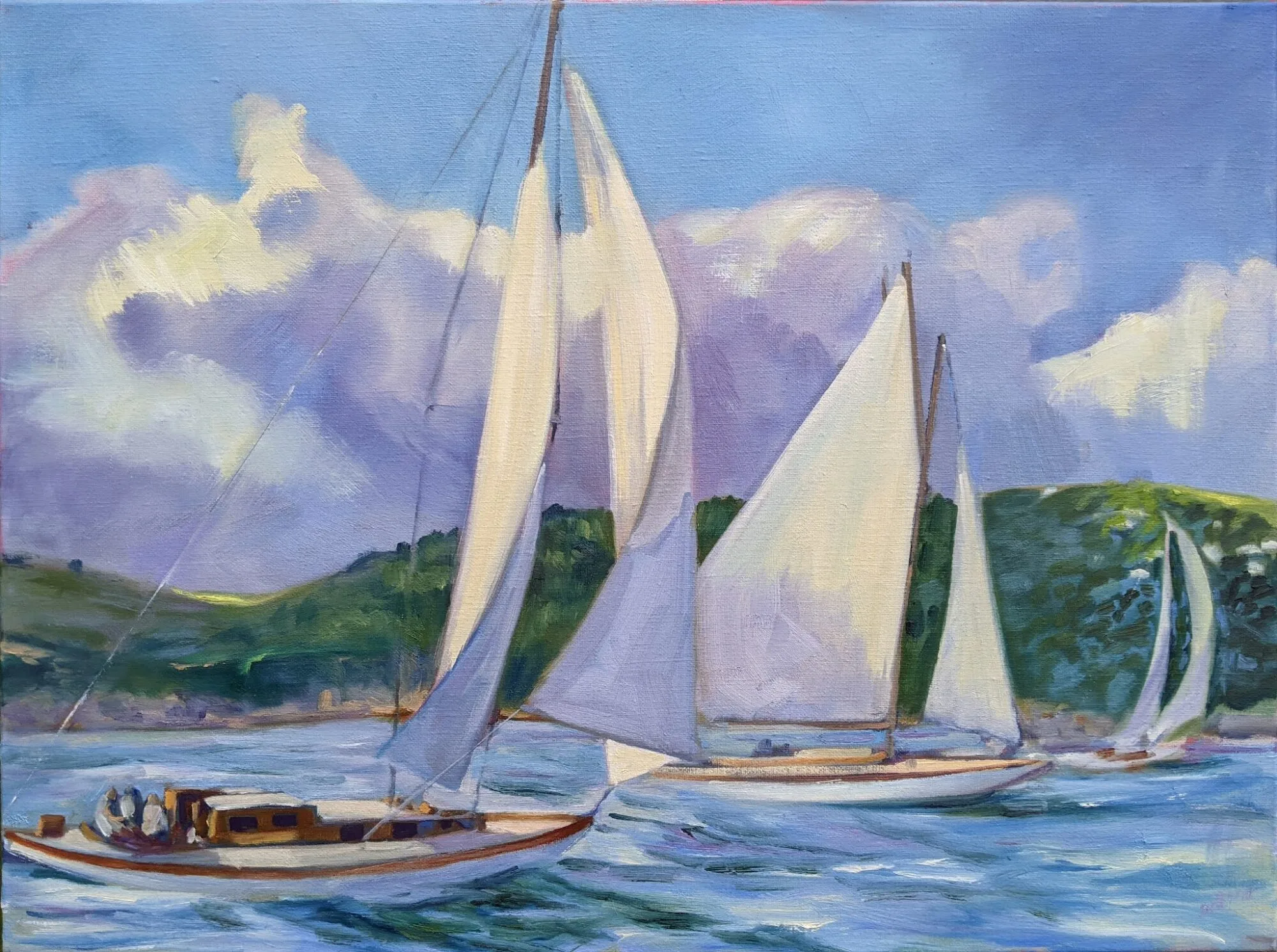Yes, you can paint and sell generic landscapes, but what’s the point?
 |
| Keuka Lake vineyard, by Carol L. Douglas |
If you were to blindfold me and drop me somewhere in New York, Massachusetts, Maine, New Hampshire, Vermont or, I suppose, parts of Connecticut or New Jersey, I could, after an hour or two of hiking, tell you approximately where I was. (Please let’s not try this game in winter.) I could approximate the latitude and longitude by experience.
| Chugash Range, Alaska, by Carol L. Douglas |
I’ve spent a lifetime observing the rocks, the trees, the understory plants, the architecture, the old businesses, and even the smells of these places. This is why I am so emphatic that Linden Frederick’s Night Stories are a portrait of Amsterdam, NY and not the Maine coast. It’s why I yammer away to my students about the cleavage in granite. There’s nothing less convincing than a shale outcropping on a supposedly-Maine coast.
Now, if you were to play the same game and drop me in the Kit Carson National Forest or somewhere in the Florida Keys, I’d be wandering around confused a week later. I don’t know the places well enough.
| Parke County, Indiana, by Carol L. Douglas |
Places are defined by their political boundaries. These don’t represent their geographical realities. Consider Indiana, for example. If you haven’t been there, you probably think it’s flat, ‘fly-over country,’ and post-industrial rustbelt. Those are all true, but limited, descriptions. Much of the state is rolling farmland, dotted with hardwood forests, marshes, and flood-prone, mud-banked rivers. Southern Indiana is downright hilly in places. In the north, the soil is made of glacial till left over from the last Ice Age. In the south, there’s limestone.
New England towns are topsy-turvier than New York towns because there’s nowhere flat to draw a street plan on. New England is forested until it breaks out into beaches, as at Cape Cod. I visited tiny Williamson, NY, yesterday. Its main street marches in a straight line for blocks. Large square houses line the streets, now somewhat recovered from the bad years. There are long, rolling, mowed lawns and cobblestone houses. Its orchards are filled with old, severely-pruned trees, which are characteristic of the apple-growing regions of the state.
| Rachel Carson refuge, Ocean Park, ME, by Carol L. Douglas |
Then there’s weather. As you head west into the Great Lakes region, you frequently hit a wall of clouds. They are often angry, sometimes morose, but never static. If you’re painting in that place at that time of year, you need to tone down the contrast, because part of the sense of place comes from the consistent low light. Conversely, if you’re from the Great Lakes region, the clear blue skies of coastal America may come as a surprise.
If you’re a landscape painter, you’d be smart to observe these differences. Mary Byrom is one of the finest painters I know. Her work is simplified to the point of abstraction, but its still immediately identifiable as the southern coast of Maine, with its rocks, surf, and marshes.
Yes, you can paint and sell generic landscapes, but what’s the point?
Have a blessed holiday! There will be no Monday Morning Art School on Christmas. Your assignment? To eat, drink and be merry.
